Vehicle Maintenance Advice
Faith's Ford General Service
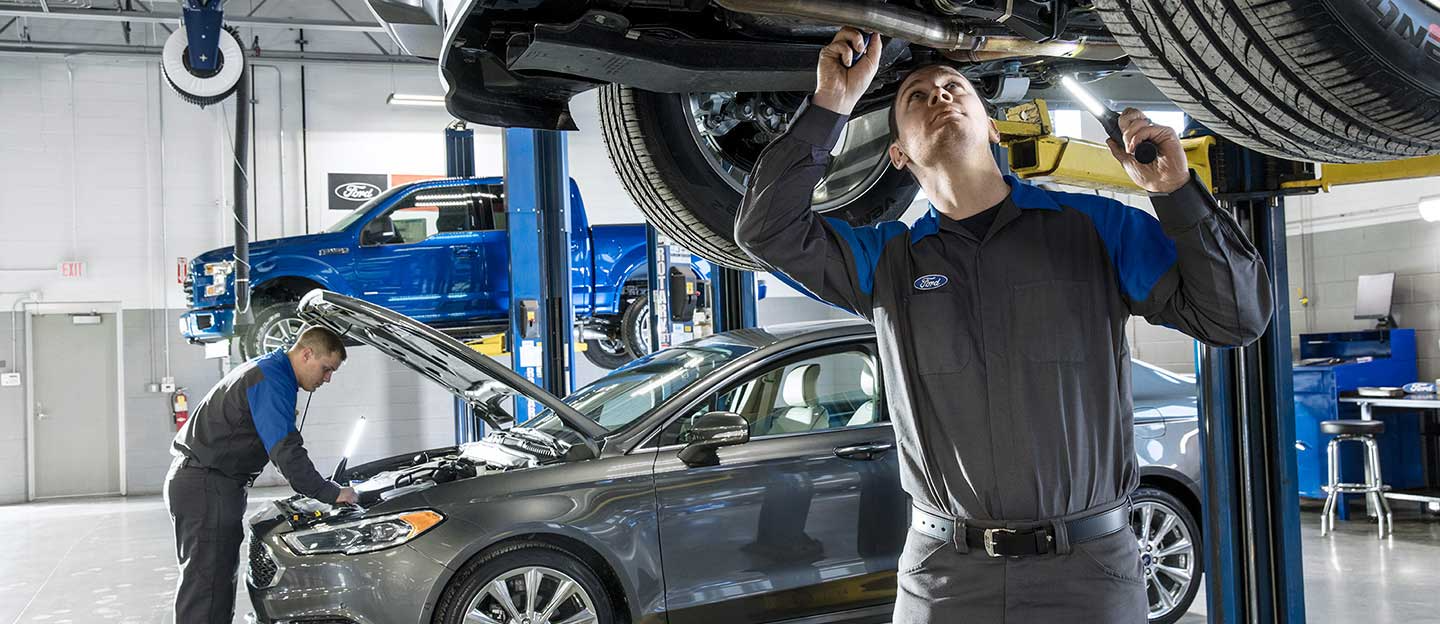
Why should I choose Faith's Ford for service and repair?
Our technicians are part of a network of over 35,000 factory‐trained Ford technicians across America ready to service your car, truck or SUV. Their training was developed by the same company that designed, engineered and built your vehicle. This means we have the right parts, tools and techs to help ensure your service is done correctly the first time.
Other benefits of Faith's Ford service include:
- Original equipment manufacturer (OEM) parts
- Full-service maintenance
- Expert heavy repair facility backed by Ford
- Parts and labor warranties
- Clean, comfortable waiting areas with free Wi-Fi
- Shuttle service to and from your home
- Friendly and knowledgeable staff
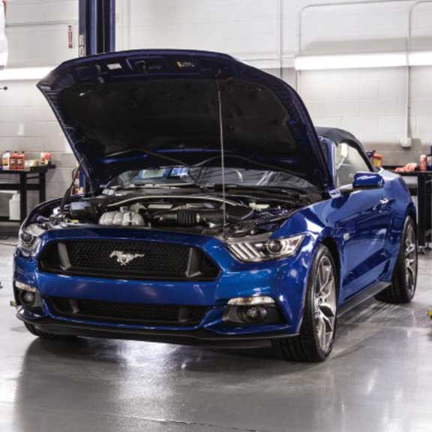
Maintaining your vehicle
Routine maintenance, such as oil changes, having fluids checked/flushed and tune‐ups, can greatly increase your vehicle's performance and reliability as well as greatly extend its life. Failing to properly service your vehicle can result in increased repair costs, as well as greatly reduce its value for a future sale or trade‐in.
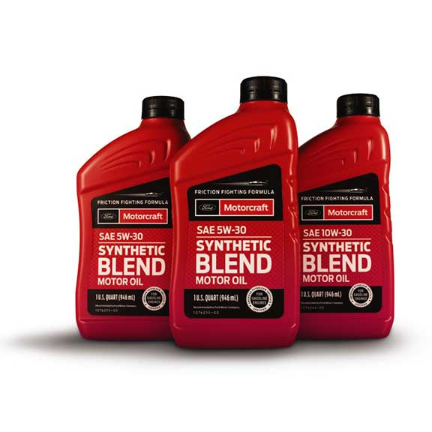
Oil Change
Today's vehicle engines generally have extended oil‐change intervals beyond 3,000 miles, so it is recommended that you consult the specific maintenance schedule interval in your vehicle's owner manual.
At Faith's Ford, an oil change is so much more than just an oil change. When you come in for The Works,® you receive a complete vehicle checkup that includes a synthetic blend oil change, tire rotation and pressure check, brake inspection, Multi‐Point Inspection, fluid top‐off, battery test, and filter, belts and hoses check – all for a very competitive price.
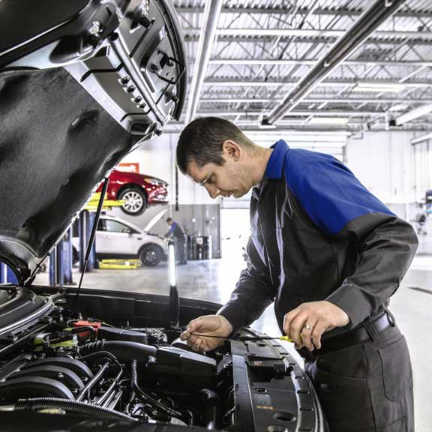
Fluid Levels
Having your fluids topped off is simple and can be performed in just a few minutes. These include oil, radiator, transmission, power steering, windshield washer and brake fluid.
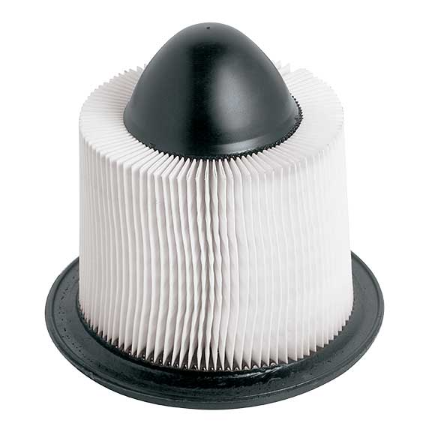
Filters
Your vehicle’s filters should be changed every 15K–30K miles. Most can be inspected and replaced during a routine oil change. These include the engine air filter, oil filter, fuel filter and cabin air filter.
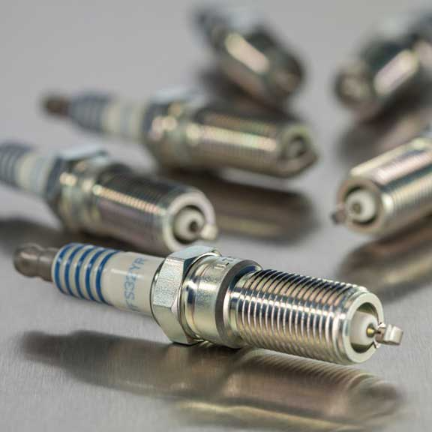
Spark Plugs
Your spark plugs should be changed every 100K miles. A bit more complicated than a routine oil change, the time and cost will depend on the year, make and model of your vehicle.
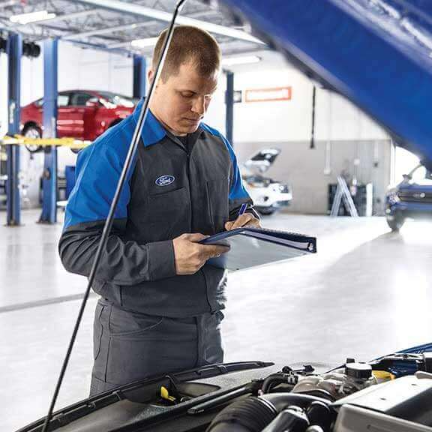
Belts and Hoses
Belts and hoses play an integral part in your vehicle’s performance. As belts age, the rubber becomes brittle, causing it to crack. If the belt is showing signs of wear on its outer edge, this is also a sign that it will need to be replaced.
Since coolant temperature is about 200 degrees, the hoses that carry it are extremely important. A belt or hose failure can cause loss of both power steering and the electrical charging system, as well as an overheated engine. If your engine overheats, this can cause the cylinder heads to warp, resulting in a very expensive repair.
Hoses are generally inspected for softness and swelling, hardening, cracks, chafing and heat damage. If any of these issues are detected, your hoses will need to be replaced.
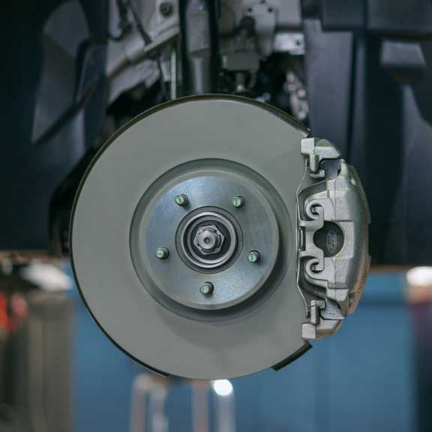
Brakes
Brake issues can start out small but worsen over time. Waiting to have them repaired can greatly increase the costs involved. Having your brakes inspected during a routine maintenance visit can help save you both time and money.
Discs should be inspected for rough spots, warping or damage. If they are shiny and show little signs of wear, maintenance is likely not needed. If they are damaged or warped, these parts should be resurfaced or replaced immediately.
Your vehicle has rubber and metal brake lines and both can crack and leak. Our technicians will first examine the rubber hoses to ensure they are soft and don’t have cracks. They’ll then check the hard metal brake lines for corrosion and leaking. If either is damaged, replacement is recommended.
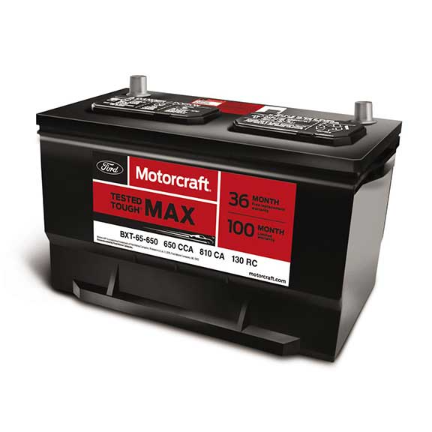
Batteries
Today's vehicles are loaded with technology. That's why it's more important than ever to ensure your battery operates at peak performance. At Faith's Ford, we know exactly what battery is needed for your specific vehicle and can help guide you through what can be a somewhat complex process.
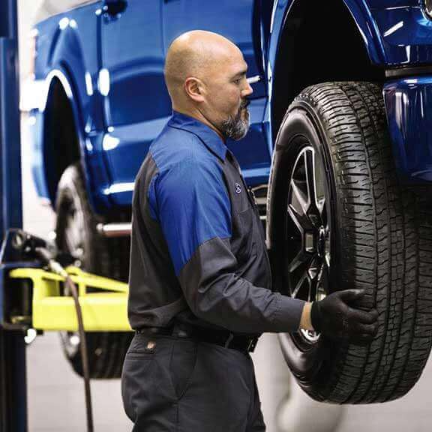
Tires
Maintaining your tires not only helps keep you safe, it also helps your vehicle run more efficiently and extends the life of the tires themselves. Following these simple steps will help ensure you get the most out of your tires:
- Have your tires rotated every 5,000 to 8,000 miles – see tire manufacturer for specific recommendations.
- Check the pressure of all tires, including your spare, at least once a month when the tires are "cold," meaning that the vehicle hasn't been driven for at least three hours. Recommended air pressure for your tires can be found on the placard typically placed on the driver's side doorjamb.
- Have your tires inspected during every service visit.

FordPassTM Rewards Visa®
The card that makes it easy to rack up FordPass Rewards Points on purchases you already make -- from filling up at the pump to your monthly auto insurance payment and more.









